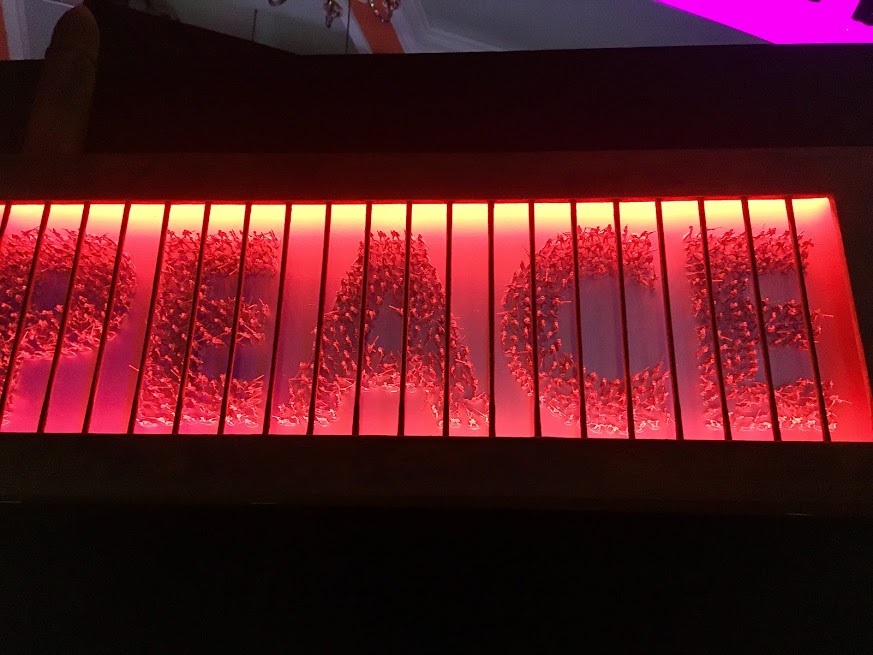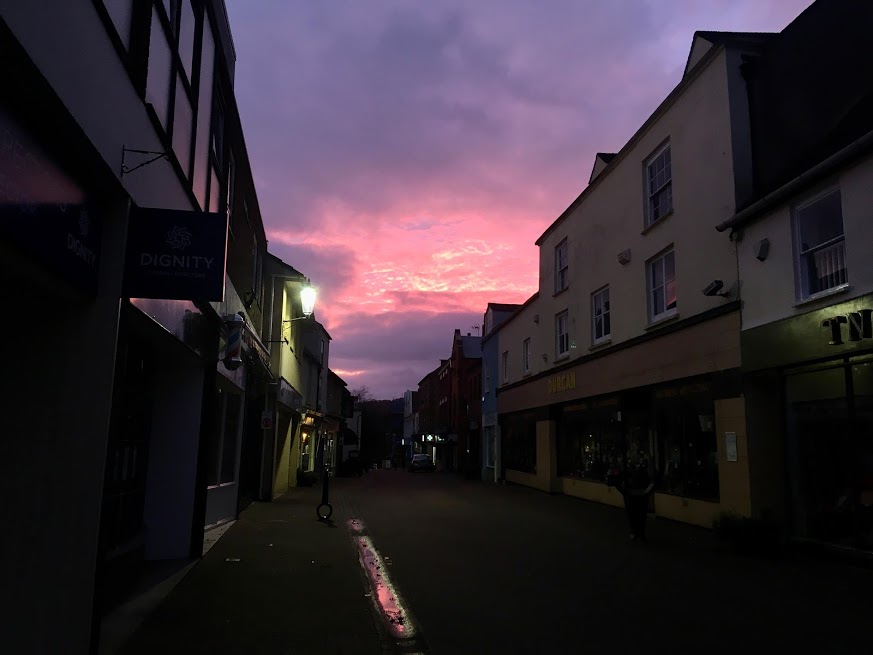This Week’s Bit of String: Lurking teens
There were five of them, maybe seven, secondary school kids in baggy tracksuits. They would slouch in the passageway under our apartment building even though none of them lived there, and they’d munch and smoke and look surly, occasionally erupting in shrieks or guffaws.
Everyone gave them a wide berth and I too felt nervous leading my son, then quite young, past them. Why though? Even if they muttered something about us, what difference did it make? They were just kids.
So one rainy day, I looked right at them and said, “Hiya. What’s going on?”
“Nothing much,” they mumbled, looking at the littered ground, shuffling their feet.
I’d shrugged and carried on, when their greasy-ponytailed leading lady, who’d already been expelled from the local comprehensive school, called after me, “But thanks for asking!”
There was a plaintive note in her voice—she wasn’t being sarcastic. They were an eyesore everyone wanted to ignore, so they moulded themselves to the expectation. I saw this play out again when I took a job at the secondary school. One of our boisterous Year 7 girls with learning and behavioural difficulties went round to a friend’s house. The next day she recounted to me, amazed and flattered, “When we got there after school, her mum asked us all about our day. Like she really wanted to know and everything! I never heard anything like it.”
Giving Voice
In our writing, we take it fairly seriously who we give a voice to. We actively seek ideas and perspectives, rather than just wait for them to come to us. In middle school, my brother and sister got trained up to be junior mediators. The programme’s slogan was: “When I listen, people talk.” At home they grumbled about that motto. It would make more sense the other way around, we were all in agreement. “When people talk, I listen.” Because otherwise, we thought as adolescents, you’d just be sitting around waiting and hoping someone starts to talk.
Welcome to the life of an adult creative… it’s also the life of a parent of teens. We have to meaningfully show we’re ready to listen if we expect either our writing to take shape, or our kids to be comfortable confiding in us. Sometimes, we just have to wait.
It’s tricky when offering ourselves up to different viewpoints these days, though. Everyone seems aggrieved, and some causes are clearly more just (and less violent or downright crazy) than others. The very figures who insist health care, voting, and living wages aren’t basic rights are the same people who howl and moan if they get a book contract or a lucrative college speaking tour cancelled for a racist tweet (or for supporting a deadly insurrection). Is being listened to a human right? Can empathy and a kind ear solve divisions that threaten a Civil War?

Not on a wide, national scale. Democrats in power now can’t just present obstreperous Republican senators with milk and cookies and ask how their day’s been. (I am picturing McConnell and Hawley and Greene in chavvy jogging bottoms, mumbling and dropping crumbs on the floor.) That’s because in order to work with people we need to not have our lives threatened by them, in the same way I had to talk myself out of fear before greeting the neighbourhood kids. The Republican party’s actions are increasingly reflecting their violent rhetoric, so there have to be major changes. But on a more immediate level, in our personal lives, perhaps we can reach out.
Understanding the Appeal
I get it, in a way, the whole QAnon, everyone’s-an-oppressive-threat thing. If a privileged person has used an incident to draw attention to themselves, they’ll have to find a bigger one next time. When the perils of migrant caravans didn’t materialise, a substantial percentage of the American population instead decided child-sacrificing pedophiles were running rampant, because of course everyone who disagreed with them must be in league with the man-goat.
I’m coming down from five years of worrying about Trump, his first campaign, and his administration. There are still many persecuted and neglected people and we have to make sure the new administration Does Something to help. But there’s some mental space free now, and it’s on me alone to use it, channel it into writing and into my family and my immediate community. There’s something almost facile about being caught up in national drama, having the excuse of a broader crisis to distract from the fraying mental health of my locked-down household, the novel ending that needs to be rewritten, and the distinct possibility that the shower and toilet are emptying below the floorboards.
Hence, I imagine, the appeal of QAnon and other Deep State conspiracy theories. You can shout about a crisis and be part of a super attentive group, but you don’t have to put effort into fixing your own life.
There, I’m beginning to form a bridge, by considering why some people might get absorbed, willingly, into this violent cult and admitting that we could have common flaws. I’m not labouring under the misapprehension that anyone from that side is going to cross that bridge and speak to me, but if they wanted to, I’d be ready to listen.

Last week at President Biden’s inauguration, poet Amanda Gorman won much attention with her poem “The Hill We Climb” and its exhortation to “be the light.” I remember another inauguration, when I’d just turned 12. Maya Angelou read her poem “On the Pulse of Morning” at Bill Clinton’s first inauguration. The last line of her poem stayed with me all this time, almost 30 years on: the hope that we can initiate change by fearlessly wishing each other Good Morning.
One of the things I’ve been telling myself in these recent times of floundering motivation, particularly as a writer, is that Small Steps Are Allowed. I don’t know how far I’m going to get when, but I’m going to do what little bits I can. Same with the world. I don’t know to reach the point where we can abide each other, but we can take this one small step recommended by Maya Angelou.
What if we just ask people around us, “What’s going on? How’s your day?” You never know, it could start a revolution.